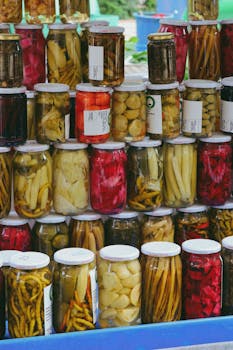As a cat parent, you want to ensure your feline stays healthy and happy. But when it comes to human foods like lentil sprouts, it’s natural to wonder: Is it safe for cats? While lentil sprouts are packed with nutrients for humans, they may not be as beneficial—or safe—for your furry friend. Let’s dive into whether cats can eat lentil sprouts, potential risks, and how to keep your cat’s diet balanced.
🌱 Can Cats Eat Lentil Sprouts?
Cats are obligate carnivores, meaning their bodies are designed to thrive on animal-based proteins. While they may occasionally nibble on plants or greens, their digestive systems aren’t built to process plant matter as efficiently as ours. Lentil sprouts, in particular, are not toxic to cats, but they’re not an ideal snack either.
Here’s why lentil sprouts are not a great fit for cats:
- Low protein content compared to animal-based foods
- High fiber, which can upset a cat’s digestive system
- Potential choking hazard due to their stringy texture
If your cat has accidentally eaten a small amount of lentil sprouts, there’s likely no cause for alarm. However, feeding lentil sprouts regularly or in large amounts can lead to digestive upset or nutritional imbalances over time.
🩺 Are Lentil Sprouts Safe for Cats?
While lentil sprouts are not inherently toxic, they can pose certain risks to your cat’s health. Here are some key safety concerns to consider:
- Digestive upset: Cats may experience vomiting, diarrhea, or gas after eating lentil sprouts.
- Bacterial contamination: Raw sprouts, including lentil sprouts, have a higher risk of harboring harmful bacteria like Salmonella or E. coli, which can make cats sick.
- Choking hazard: The fibrous texture of sprouts can be difficult for cats to chew and swallow.
If you suspect your cat has eaten lentil sprouts and is showing symptoms of illness, contact your vet immediately for guidance.
🐾 Why Do Cats Sometimes Eat Plants?
Even though cats are carnivores, you might catch them nibbling on plants or greens. This behavior is surprisingly common and can happen for several reasons:
- Curiosity: Cats are naturally inquisitive and may chew on sprouts or other plants out of sheer interest.
- Fiber craving: Some cats eat plants to help with digestion or to induce vomiting when they’re feeling unwell.
- Texture preference: The crunchy texture of sprouts might attract your cat.
However, it’s important to monitor your cat’s plant-chewing habits to ensure they’re not consuming anything harmful. Many household plants and foods can be toxic to cats, so it’s best to provide safe alternatives.
🍽️ Healthy Alternatives to Lentil Sprouts
If your cat enjoys munching on greens, there are safer and more nutritious options to satisfy their cravings. Consider offering these cat-friendly alternatives:
- Cat grass: A blend of safe grasses like wheatgrass or oat grass, specially grown for cats to nibble on.
- Cooked vegetables: Small amounts of cooked carrots, green beans, or zucchini can be a safe treat.
- Commercial cat treats: Choose high-quality, vet-approved treats designed to meet your cat’s nutritional needs.
Always introduce new foods gradually and in moderation to avoid upsetting your cat’s stomach. And remember, treats and extras should make up no more than 10% of your cat’s daily diet.
🐱 How to Spot Digestive Issues in Cats
If your cat has eaten lentil sprouts or any unfamiliar food, it’s crucial to watch for signs of digestive distress. Symptoms of an upset stomach in cats include:
- Vomiting or regurgitation
- Diarrhea or loose stools
- Loss of appetite
- Lethargy or unusual behavior
In most cases, mild digestive issues will resolve on their own within 24 hours. However, if symptoms persist or worsen, consult your vet right away.
🛡️ Tips to Keep Your Cat Safe
Preventing your cat from eating unsafe foods, including lentil sprouts, is the best way to protect their health. Here are some practical tips to help:
- Store sprouts and other human foods out of reach.
- Provide plenty of cat-friendly toys and treats to distract them from curious nibbling.
- Supervise your cat when they’re exploring new areas or environments.
- Keep a list of toxic foods and plants handy for quick reference.
By creating a safe and engaging environment, you can reduce the chances of your cat eating something they shouldn’t.
FAQs
Can lentil sprouts harm my cat? Lentil sprouts are not toxic, but they can cause digestive upset or pose a choking hazard. Avoid feeding them to your cat.
What should I do if my cat eats lentil sprouts? Monitor your cat for signs of illness, such as vomiting or diarrhea. If symptoms occur or worsen, contact your vet immediately.
Are there any safe plant-based treats for cats? Yes, options like cat grass or small amounts of cooked vegetables can be safe and enjoyable for cats.
How can I stop my cat from eating unsafe foods? Keep human foods out of reach, provide cat-safe alternatives, and supervise your cat in new environments.
References
Book a $49 online vet consultation at https://www.dialavet.com for fast, expert advice.








